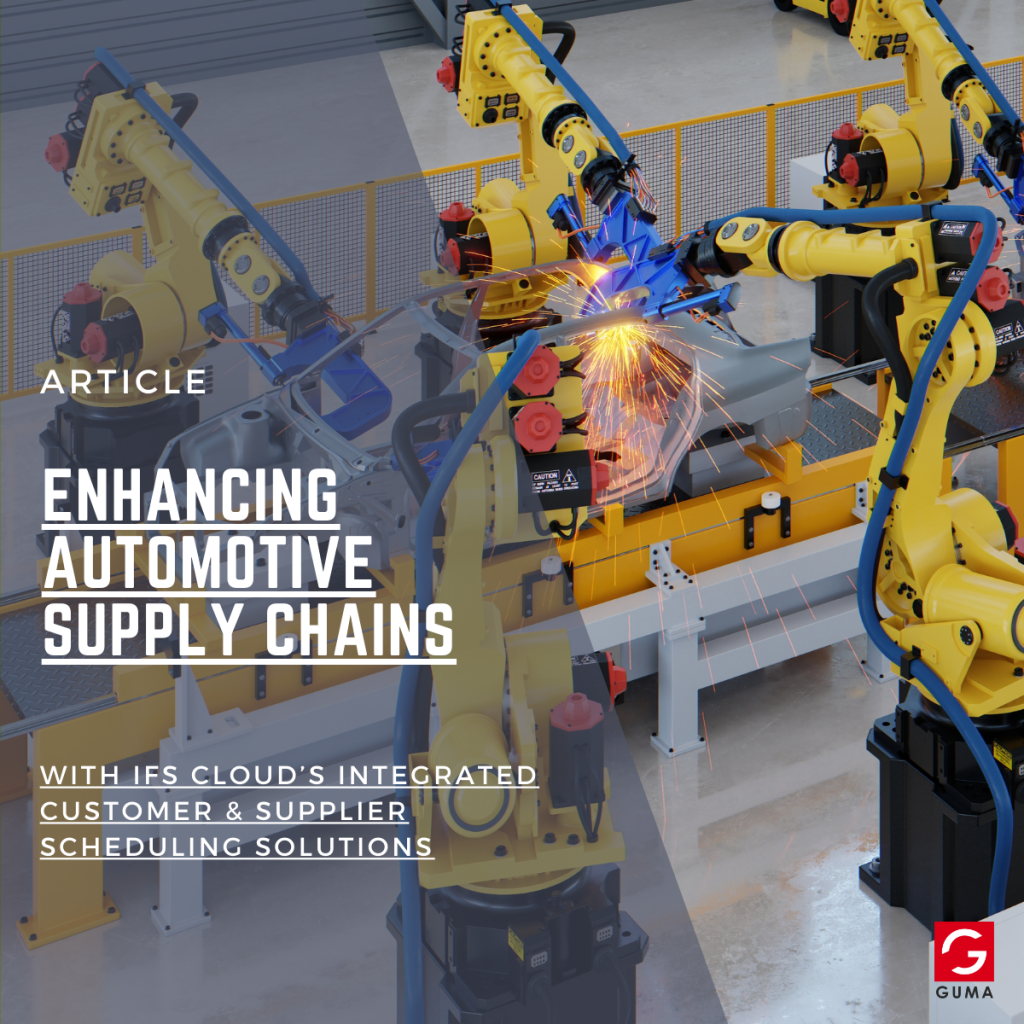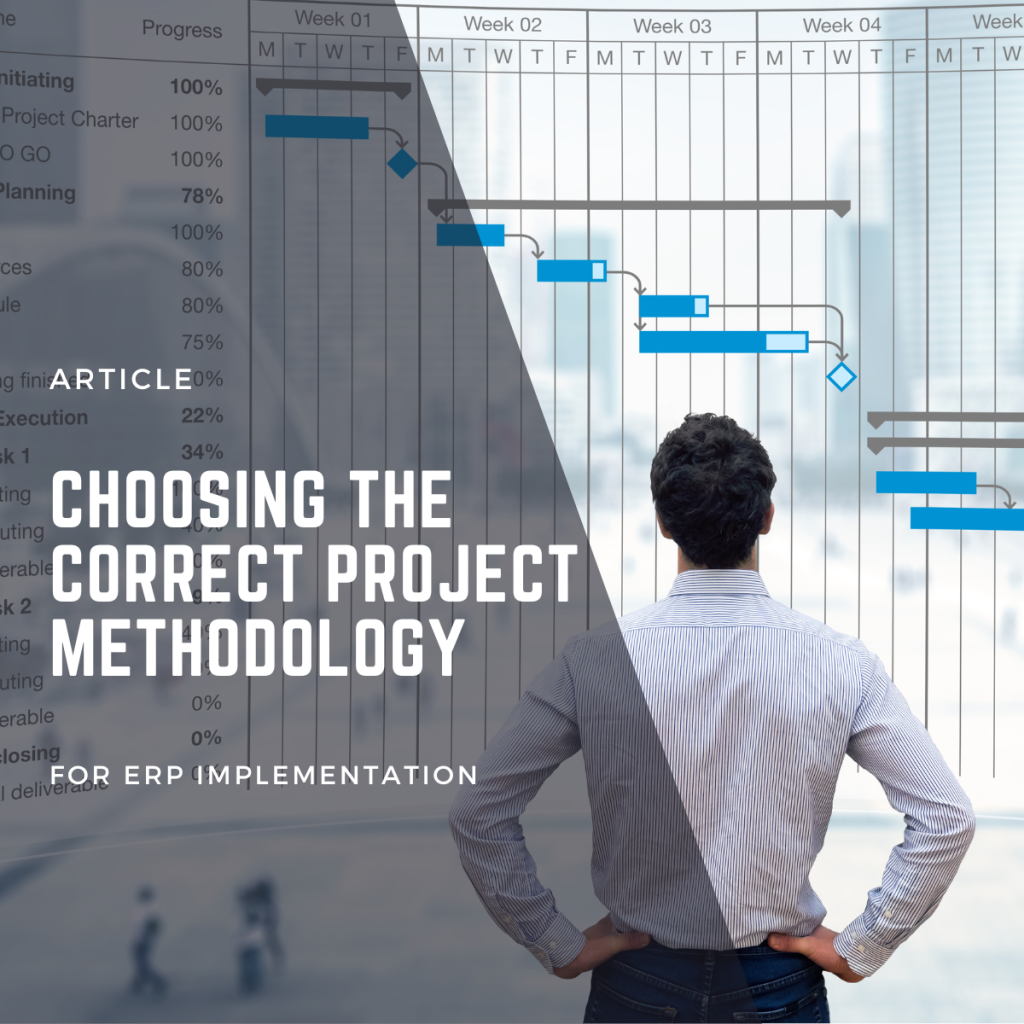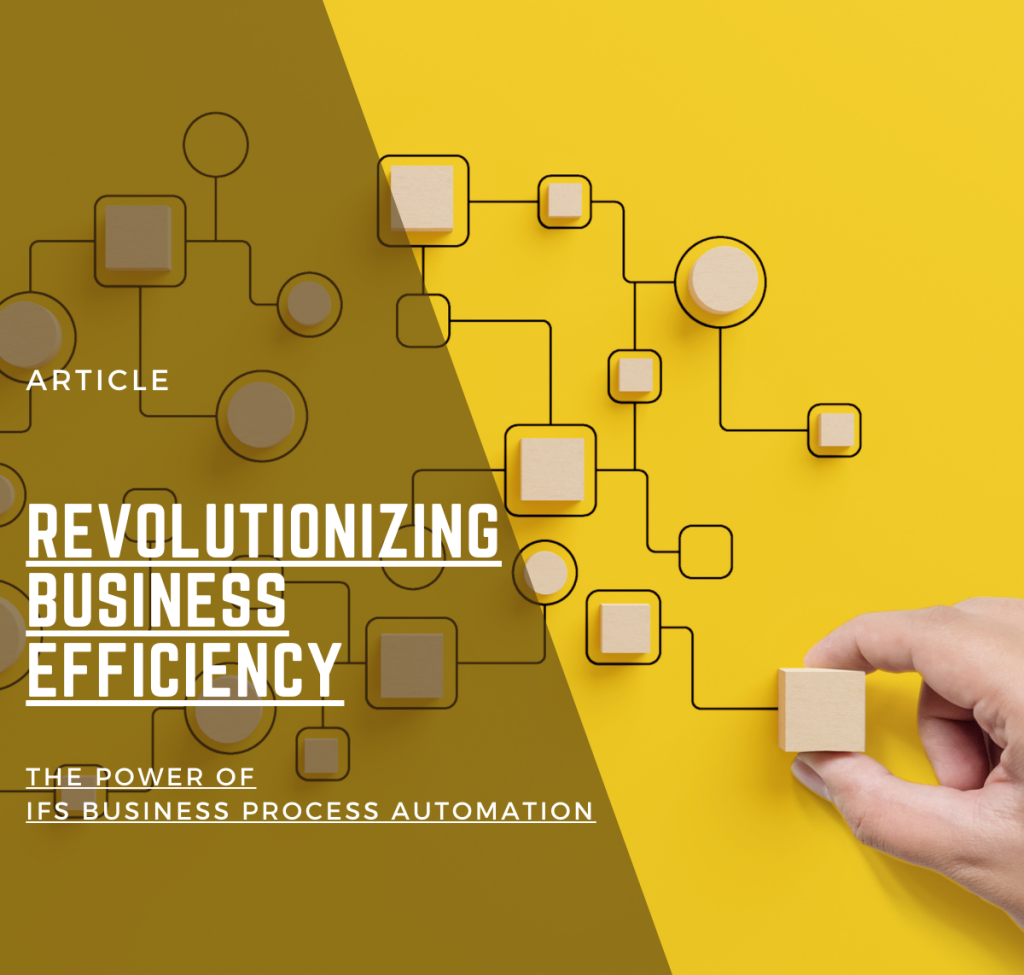In the highly competitive automotive industry, the synchronization of supply chain activities with customer demands is crucial. IFS Cloud’s “Customer Schedule” and “Supplier Schedule” modules are specifically designed to cater to these needs, offering advanced functionalities that integrate deeply within automotive manufacturers’ operations.

Advanced Features of IFS Cloud’s Customer and Supplier Schedule Modules
1. Integration with Electronic Data Interchange (EDI): IFS Cloud provides robust EDI integration capabilities, essential for the automotive industry where transactions are frequently processed electronically. This integration facilitates seamless communication between manufacturers, suppliers, and customers, enabling the efficient exchange of documents like purchase orders, invoices, and shipping notices.
2. Utilization of Forecast and Firm Orders: In the automotive sector, the ability to plan based on both forecasted and firm orders allows companies to optimize their operations. Forecast orders help anticipate future demands for resource planning, while firm orders activate actual production activities. This dual approach ensures that manufacturers can adjust their processes in real-time, improving responsiveness to market changes.
3. Native Integration with IFS Master Production Schedule (MPS): The “Customer Schedule” module is directly integrated with IFS’s MPS. This ensures that customer demands directly influence production planning, enabling the MPS to generate detailed production schedules that align closely with market requirements and customer expectations.
4. Collaboration with Agreement Modules: Both the “Customer Schedule” and “Supplier Schedule” modules work directly with IFS’s agreement modules. This integration offers tolerance controls, which are crucial for managing the differences between forecasted and actual figures. These controls ensure that any deviations between forecasts and real data remain within the predefined agreement rules, enhancing compliance and reducing discrepancies.
Benefits for the Automotive Industry
- Enhanced Operational Efficiency: With EDI capabilities, automotive companies can reduce manual data entry errors and accelerate transaction processing times. This efficiency not only saves time but also cuts costs related to delays and corrections.
- Improved Supply Chain Coordination: Using forecast and firm orders enables manufacturers to avoid overstocking and understocking. This balance is vital for preventing production stoppages due to shortages and reducing costs associated with excess inventory.
- Seamless Production Planning: The direct link between the scheduling modules and the MPS ensures that production plans are always in sync with current customer demands. This synchronization helps minimize lead times and enhance the agility of manufacturing processes.
- Regulatory Compliance and Agreement Adherence: The tolerance controls facilitated by the integration with agreement modules ensure that operations stay within contractual and regulatory boundaries, crucial for maintaining business integrity and customer trust.
By leveraging the integrated scheduling capabilities of IFS Cloud, automotive manufacturers can enhance their supply chain visibility and responsiveness, ensuring they remain competitive in a rapidly evolving industry. This strategic approach not only supports operational excellence but also drives customer satisfaction by reliably meeting delivery schedules and quickly adapting to changes in customer demand.
ABOUT THE AUTHOR
With over 20 years of professional expertise in the IT software industry, including an impressive 19-year tenure in a managerial position at IFS Turkey, Göksel Sanbay brings a wealth of experience to the table. Throughout his career, he has successfully managed dozens of hands-on ERP, EAM, and ESM projects, leaving a trail of satisfied clients and successful implementations.
Notably, he has also excelled as a solution architect, leaving his mark on various reference IFS projects. His passion for innovation and driving efficiency has led him to embark on a new journey. In July 2022, he founded GUMA Business Solutions, a dynamic consulting company exclusively dedicated to crafting cutting-edge business software solutions, with a specialization in IFS Applications.
At GUMA, we thrive on challenges and aspire to take businesses to new heights through tailor-made software solutions that streamline operations, boost productivity, and empower growth









